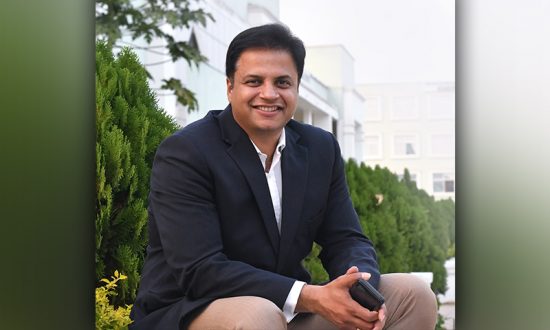Siddharth Chaturvedi is the Executive Vice President of the AISECT Group, which is India’s leading Social Enterprise that has been working extensively in the areas of Skill Development, Higher Education, Online Education, Rural Job Placement, Financial Inclusion, e-Governance and other ICT-based services to bring about an inclusive change in the semi-urban and rural areas of the country. Along with this, he is the Chairman of the CII Bhopal chapter. Siddharth is also a part of the Governing Body and Board of Management of the Dr. C. V. Raman University in Chhattisgarh as well as the Rabindranath Tagore University in Madhya Pradesh.
The New Education policy has raised the stakes for higher education, it has become the cornerstone for enhanced multi-disciplinary learning, better student outcomes, job opportunities etc. As per the New Education Policy, students are free to choose from a combination of Job oriented courses with a cross combination of programme frameworks, that will prepare students with applicable skills for the industry. In the years to come, aspiring students will have gained holistic education that will revolutionise India’s workforce. The innovative dimensions in learning and structural and functional changes will give additional impetus to educate and strengthen vocational education and training that meets global standards while focussing on the ethos of inclusive, equitable access to education for all.
There is a huge responsibility on educators to enhance the experience and offer flexible options to students seeking skill-based education in India. The focus has to shift from providing basic education to making education more employable. The inclusive approach with a multi-lingual formula and academic evaluations are now is now based on skills and capabilities instead of the marks scored during exams. Universities must align with NEP and adhere to their policies whether it’s common entrance exams or encouraging students to opt for electives that will be vocational courses and help them become future-ready employees.
Several Universities now offer unique courses as primary subjects and electives such as Foreign Language, Yoga, Personality development, Data Science, Digital Marketing, Communication skills Agriculture etc. that not only enhance their skills but also nudge them towards entrepreneurship to become self-starters. Universities and educators should collaborate with students to improve their communication skills and personality development which will boost their confidence and make them job-ready. The most imperative step in ensuring that students find a foothold in their jobs can be done by offering apprenticeships. Universities should collaborate with skill partners and companies that offer training, on the job training. For example, Bosch is a pioneer that helps to fulfil training programmes that enable the growing need for skilled manpower across sectors in India. They offer a unique vocational training model for making underprivileged children employable, thereby providing a pool of high-quality skilled manpower, mainly to the services industry.
Another impending problem area in college-level education is the high dropout rates. Students must be introduced to vocation training at the school level, and offering technical education to the grassroots of India in regional languages to decrease dropouts and address several shortcomings that exist in the education system in India. While reforms to the new policy and changes in the higher education system include students being given the choice to either pursue three or four-year undergraduate degrees and higher education institutions being able to offer Master’s courses of different designs, only a focussed plan of action can address the issue.
Multi-disciplinary education is the way forward to bringing more students to take up higher education courses fold by reaching out and being inclusive, especially to students who had found the offerings of higher education limiting. The HEI need to be faced-paced in their approach to making the course curriculum more comprehensive and offering it in regional languages, in a manner that is aligned to real-world needs, etc. These are efforts they will have to make to enhance the Gross Enrolment Ratio (GER), for which India has a goal of 50% by 2035. By adopting online and hybrid modes of education using – Study Webs of Active-learning for Young Aspiring Minds (SWAYAM), whose regulations permit up to 40 % of the course to be delivered online. Providing apprenticeship programmes or internships also sharpens the NEP and HEI’s objective of enhancing employability. The new National Education Policy (NEP) has proven to redefine old world of learning with its inclusive, multi-disciplinary approach and emphasis on holistic learning to build a nation economically strong, youth future-ready and socially aware.




